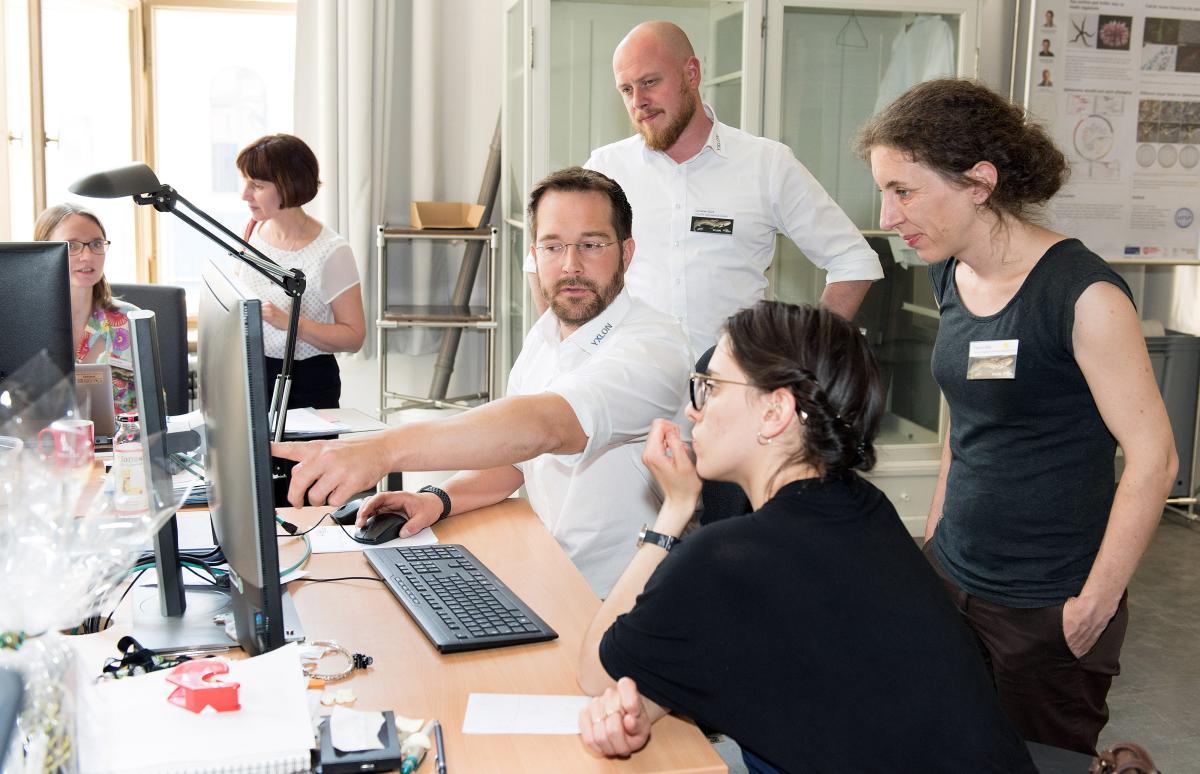YXLON International and the Museum für Naturkunde Berlin had invited to a three-day Imaging Technology Symposium from June 12 to 14. Under the title “Advances in Computed Tomography (CT) Technology for Life Sciences and Natural History Science Museum Collections”, renowned scientists from international universities and institutes shared their experiences on CT imaging in natural science applications. About 60 participants from the fields of biology, morphology, paleontology, and zoology gathered at the MfN to hear ten high-profile lectures presented by, among others, Prof. Phil Manning from Manchester, Dr. Alexander Ziegler from Bonn and Prof. Julia Clarke from Austin. Additional agenda items included three guided tours through the museum’s collection as well as four workshops. Guests had their chances to inspect their own specimens they had brought along. These were scanned and analyzed in the high-resolution computed tomography system YXLON FF35 CT. Museums are increasingly utilizing non-destructive computed tomography for more than just scientific research – the digitalization of billions of specimens in natural and human history institutes around the world is also of growing significance. With the help of CT, valuable research objects can be examined in detail without the risk of damaging them through special preparation methods. Furthermore, the digital objects can also be made available to scientists throughout the entire world. The symposium managed to promote the exchange of these valuable experiences in order to advance science and systems technology.
